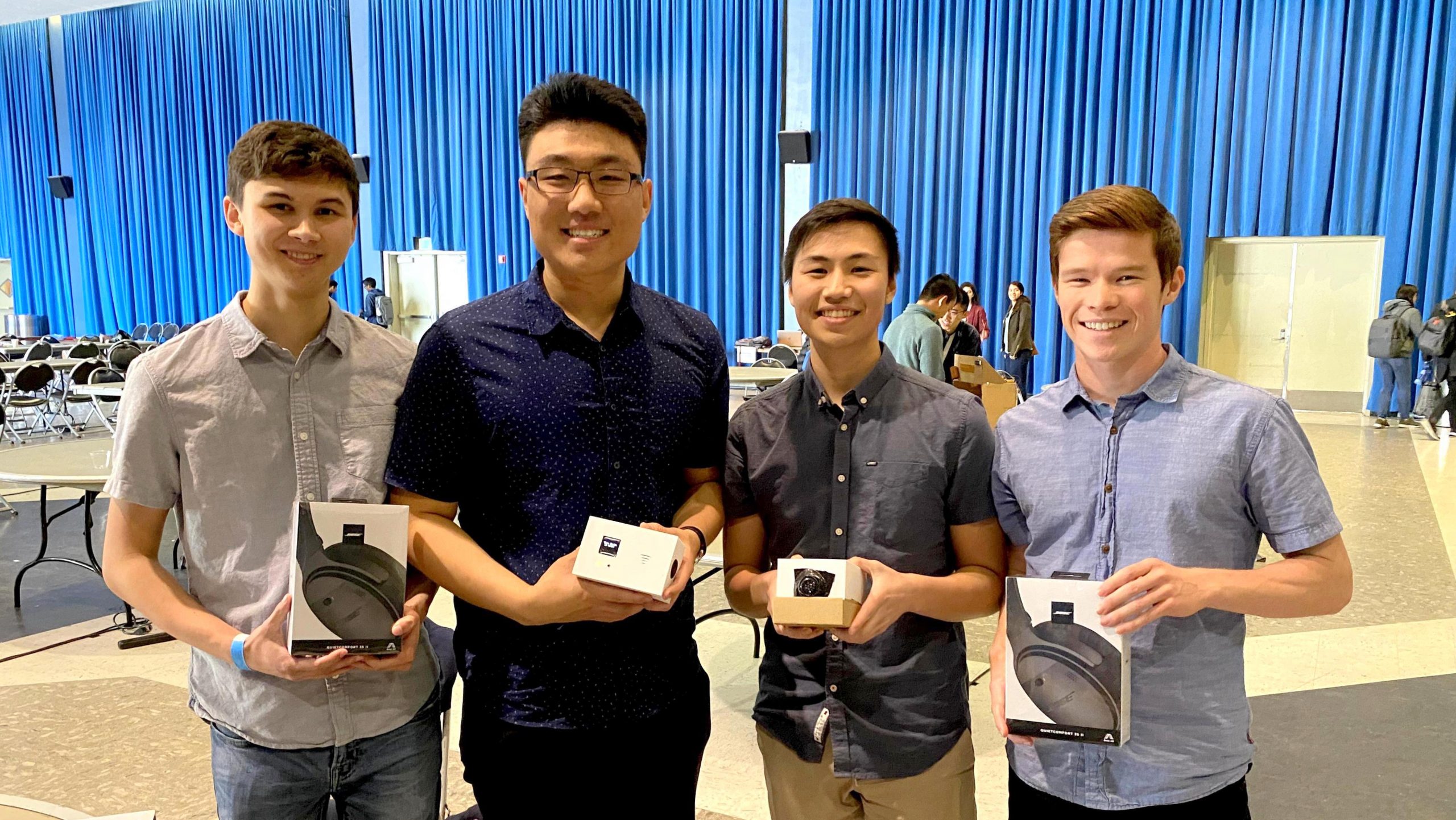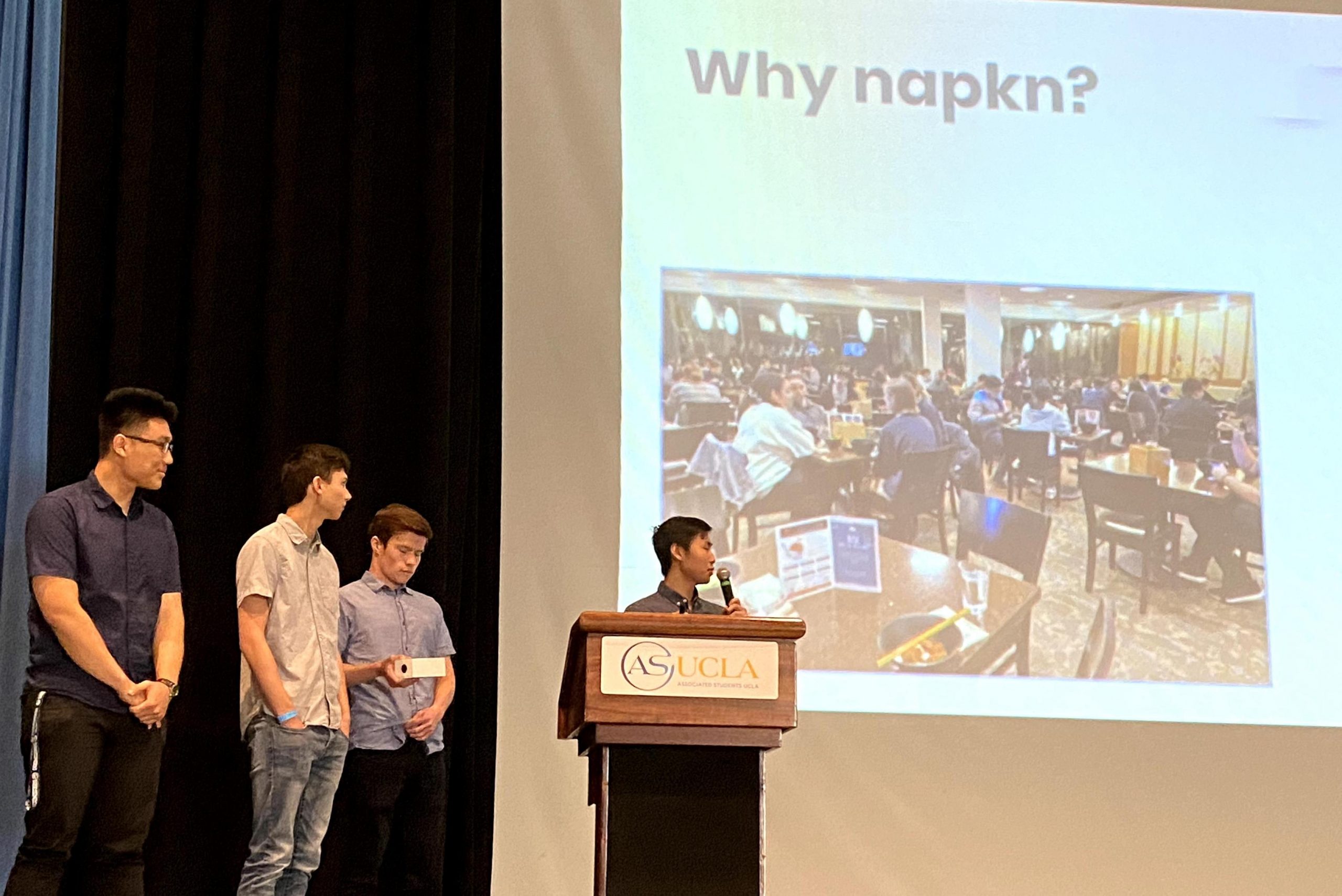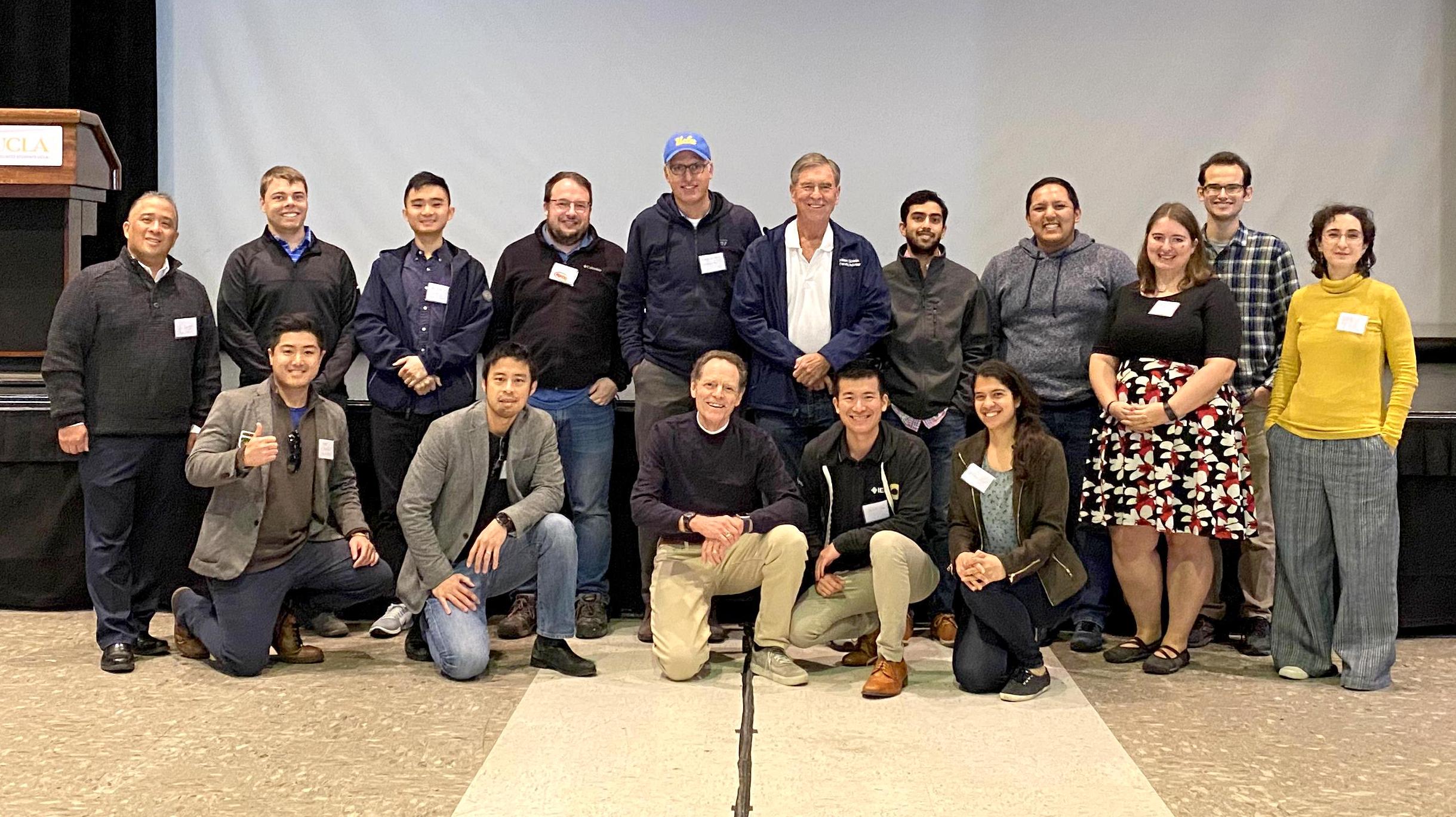Over the weekend of January 10-12, UCLA IEEE and Theta Tau presented the sixth annual Idea Hacks hardware hackathon. The theme was Student Life; and students were required to form teams and create products and devices using the hardware components provided. The hardware included arduinos, FPGAs, Raspberry Pi, WiFi, Bluetooth, as well as 3-D Printers, soldering equipment, drills, tape, hammers, etc.
Sponsoring companies included Digi-Key, ST Microelectronics, Advantech, Northrop Grumman, Lockheed Martin, Texas Instruments, UCLA Student Wellness Commission, and the UCLA Green Initiative Fund.
More than 250 students participated in this 36-hour event. Thirty-six teams finished the competition; and a team of 18 judges including alumni, faculty, and members of sponsoring companies, reviewed the designs. Among the designs were a shower timer to save water, a homework and task tracker, a scanner to translate a textbook into an audio recording, an electronic pen to improve note taking, several variations on alarms to alert students to possible theft of possessions such as laptops or backpacks, and a portion control system to provide the right amount of seasoning on a meal. Several teams included first-year and second-year students.
The winning team of five students designed Napkn to solve the problem faced by many students of finding a table in a dining hall or library packed with people. Their real time database-enabled tabletop IoT device easily reserve tables, analyze dining/study hall traffic, and optimize students’ eating and studying experience. With a simple tap of an RFID-enabled card, users can check in to a table, reserving it for a predefined duration. Once the user is finished using their reserved dining hall table, library table, etc., all it takes is another tap of their RFID card to free the table for use. This check-in procedure doubles as a user verification system, ensuring that tables go to UCLA students and authorized guests. A mini OLED display, a pair of red/green LEDs, and a transistor-amplified speaker provide satisfying visual and auditory feedback for users. The team members were Bryan Wong, Caleb Terrill, Fred Chu, Lucas Wolter, and Caitlyn Chau.
Additional winning teams were in categories of education and sustainability, and for the best use of the Advantech and St Microelectronics hardware platforms.
The students really enjoyed the opportunity to build devices that demonstrated their creativity and challenged their hardware and software skills in a short period of time. The company representatives commented on how impressed they were with the students’ hard work, and the overall excellent organization of the event.

Napkn team members

Napkn team describing their device to the judges

Faculty, alumni, and industry sponsors serving as judges.
